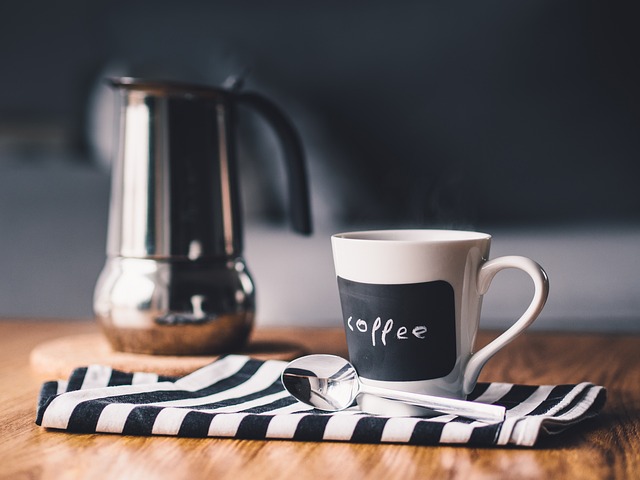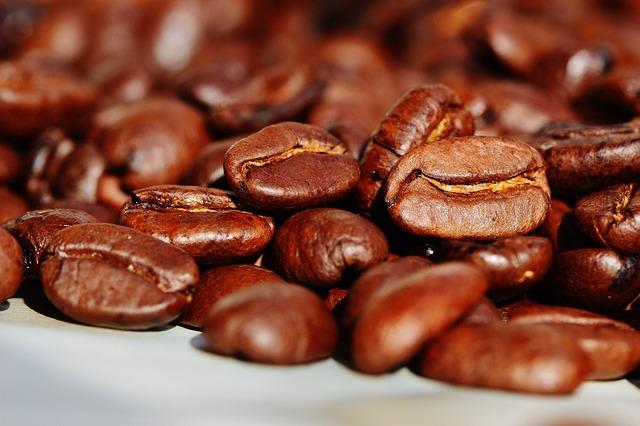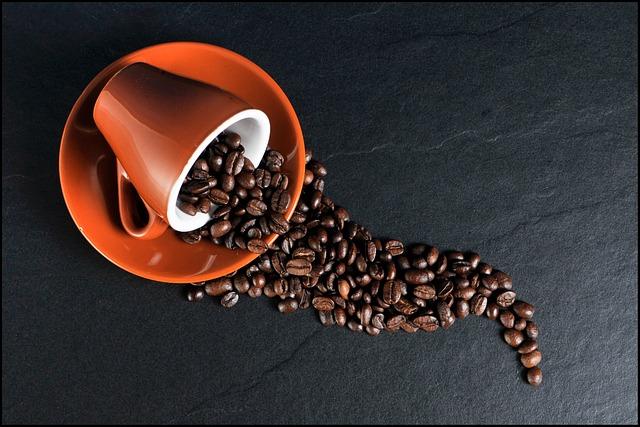Have you ever wondered if the vanilla bean, with its enticing aroma and exquisite flavor, contains any caffeine? It’s a common question among those who savor the rich taste of vanilla in their favorite desserts and beverages. In this article, we will unravel the mystery behind the caffeine content of vanilla beans and explore the fascinating world of this beloved ingredient. So grab a cup of your favorite vanilla-infused beverage and join us on this captivating caffeine-filled journey!
1. Understanding the Vanilla Bean: A Delectable Ingredient That Captivates Our Palates
The vanilla bean is a truly extraordinary ingredient that tantalizes our taste buds and adds a unique touch to countless dishes and treats. Derived from the orchids of the genus Vanilla, this slender black pod is packed with flavor and fragrance that can transform ordinary desserts into delightful masterpieces.
So, what makes the vanilla bean so special? First and foremost, its natural aroma is simply enchanting. When you open a freshly harvested vanilla bean, you’ll be greeted by a rich, sweet scent that instantly transports you to a world of indulgence. This captivating aroma is thanks to a compound called vanillin, which is responsible for the bean’s distinct flavor. Besides its incredible smell, the vanilla bean is also a versatile ingredient that can enhance both sweet and savory dishes. From creamy ice cream and velvety custards to hearty stews and delicate soups, this remarkable pod can elevate any recipe to new heights. Additionally, the vanilla bean offers a myriad of health benefits, such as anti-inflammatory and antioxidant properties, making it a guilt-free addition to your culinary repertoire. So why not explore the wonders of this delectable ingredient and embark on a journey of flavor discovery?

2. Delving Into the World of Caffeine: Unraveling Its Effects and Hidden Sources
In this section, we will dive deep into the fascinating world of caffeine, unraveling its effects on our bodies and exploring the hidden sources that may surprise you. Caffeine, a natural stimulant, is commonly consumed in beverages like coffee, tea, and energy drinks. However, its effects go beyond simply keeping us awake.
Effects of Caffeine:
- Caffeine stimulates the central nervous system, making us feel more alert and focused.
- It can improve our physical performance by increasing adrenaline levels and mobilizing fatty acids for energy.
- Caffeine may enhance our mood and reduce the risk of depression.
- It can boost our metabolism, aiding in weight loss.
Hidden Sources of Caffeine:
- Chocolate: Several types of chocolate, especially dark chocolate, contain caffeine in varying amounts.
- Sodas and soft drinks: Some popular carbonated beverages, including colas, contain caffeine.
- Medications: Certain over-the-counter and prescription medications, such as pain relievers or cold remedies, may contain caffeine.
- Tea: Besides coffee, various types of tea, including black, green, and white tea, naturally contain caffeine.
With the understanding of caffeine’s effects and knowledge about its hidden sources, you can make informed choices and manage your caffeine intake effectively.

3. The Curious Case of Vanilla Bean: Does It Pack a Caffeine Punch?
Vanilla is a flavor loved by many, whether it’s used in ice cream, baked goods, or even coffee. However, have you ever wondered if vanilla bean contains any caffeine? Well, the answer might surprise you. While most people associate caffeine with drinks like coffee or tea, vanilla bean itself doesn’t actually contain any caffeine at all. That’s right, no coffee buzz from enjoying your favorite vanilla-flavored treat!
So, why do we often find vanilla included in the ingredient list of caffeinated beverages like colas or energy drinks? The truth is, it’s not the vanilla that provides the caffeine kick. Instead, these drinks often use artificial vanilla flavorings to enhance the taste. While the vanilla flavoring adds depth and richness to the beverage, it doesn’t contribute any caffeine content.
4. Demystifying Vanilla Bean’s Caffeine Content: Debunking Common Misconceptions
Many people assume that Vanilla Bean contains caffeine but in reality, it does not. Here, we aim to clear up common misconceptions surrounding the caffeine content of this popular flavoring. Let’s dive in and debunk these myths!
Myth 1: Vanilla Bean is a natural source of caffeine. Contrary to popular belief, Vanilla Bean itself does not contain any caffeine. It is derived from the vanilla orchid plant and is primarily used for its aromatic qualities rather than its energy-boosting properties.
Myth 2: Consuming Vanilla Bean can give you a caffeine buzz. Some individuals enjoy the comforting flavors of Vanilla Bean in beverages or baked goods and mistakenly perceive it as a caffeinated ingredient. However, rest assured that indulging in a vanilla-flavored treat won’t result in a sudden burst of energy or keep you up all night.
5. The Science Behind Vanilla Bean: Exploring Its Complex Composition and Caffeine Content
The vanilla bean is not only a delicious and aromatic ingredient that adds a sweet twist to desserts and drinks, but it also holds some fascinating scientific secrets. Its complex composition is a key factor in its exquisite flavor and aroma. Let’s take a closer look at what makes vanilla beans so unique.
One of the main components of vanilla beans is vanillin, which gives it its distinct taste and fragrance. This organic compound is responsible for the sweet and creamy flavor that we all love. Additionally, vanilla beans contain numerous other compounds that contribute to their complex composition, including coumarins, phenols, and alcohols. These compounds work together to create the intricate flavor profile that makes vanilla beans a culinary treasure.
In addition to its composition, the caffeine content of vanilla beans is another interesting aspect to explore. Unlike coffee or tea, which are known for their caffeine content, vanilla beans generally have minimal amounts of caffeine. While caffeine is a natural stimulant found in many plants, it occurs in only small quantities in vanilla beans. So, those indulging in vanilla-flavored treats can enjoy the rich taste without worrying about a caffeine buzz. Vanilla beans truly offer a delightful sensory experience without the jolt of energy that comes with caffeine in other sources.
6. A Noteworthy Revelation: Vanilla Bean’s Surprisingly Negligible Caffeine Levels
The vanilla bean, widely known for its aromatic flavor and its use in various culinary delights, has recently surprised many with its surprisingly minimal caffeine content. While most people associate caffeine with beverages like coffee and tea, few would suspect that the vanilla bean, a staple in desserts and sweet treats, contains such negligible levels of the stimulating compound. This revelation has sparked curiosity among food enthusiasts and health-conscious individuals, prompting a deeper exploration into the properties of this beloved ingredient.
Contrary to popular belief, the vanilla bean contains an impressively low amount of caffeine, making it a favorable choice for those who prefer to avoid or limit their caffeine intake. In fact, the caffeine content in a vanilla bean is so minimal that it would require consuming an exorbitant amount to experience any significant effects. This characteristic makes vanilla a suitable option for individuals who are sensitive to caffeine or simply prefer to opt for a more relaxed and soothing culinary experience.
- Noteworthy fact 1: The caffeine content in a vanilla bean is approximately 0.1 milligrams per gram.
- Noteworthy fact 2: In comparison, an average cup of coffee contains around 95 milligrams of caffeine.
- Noteworthy fact 3: Vanilla’s lack of caffeine does not detract from its ability to enhance flavors and impart a sense of warmth and comfort.
Ultimately, this discovery highlights the versatility and appeal of the vanilla bean beyond its traditional use. Whether it’s enriching a creamy custard, adding depth to a batch of cookies, or infusing a delicate fragrance into a homemade candle, vanilla remains a beloved ingredient that can be enjoyed by caffeine enthusiasts and non-caffeine seekers alike.
7. Embrace the Indulgence: Savoring the Rich Flavors of Vanilla Bean Without the Caffeine Jitters
Vanilla bean is a delightful flavor that adds a touch of sophistication to any dish or drink. But for those sensitive to caffeine, enjoying the rich flavors of vanilla bean can be a challenge. Luckily, there are ways to savor this indulgence without experiencing the jitters that come with caffeine.
1. Decaffeinated vanilla bean: Choose products that are specifically labeled as decaffeinated. These products go through a process that removes most of the caffeine, while retaining the distinct vanilla flavor. Whether it’s in the form of vanilla extract, vanilla beans, or vanilla-infused products, opting for the decaffeinated version allows you to enjoy the full richness of vanilla bean without worrying about the side effects of caffeine.
2. Herbal vanilla teas: Another option to embrace the indulgence of vanilla without caffeine is to explore herbal teas infused with vanilla flavors. Steep a vanilla bean in hot water, or explore the wide variety of herbal tea blends that include vanilla. The warmth of the tea and the underlying vanilla notes create a cozy and comforting experience, allowing you to enjoy the richness of vanilla bean without any caffeine-related concerns.
8. The Final Verdict: Incorporating Vanilla Bean Into Your Culinary Adventures With Confidence
Vanilla bean adds a delightful depth of flavor to various culinary creations, making it an essential ingredient for any aspiring chef. Whether you’re a seasoned pro or a beginner in the kitchen, incorporating vanilla bean into your recipes can elevate your dishes to new heights. Here are some pointers to help you use vanilla bean with confidence and finesse:
1. Choose the right vanilla bean: When selecting vanilla beans, opt for those with a plump, moist appearance. Look for beans that are dark brown and flexible, as they tend to be the most flavorful. Avoid any beans that are dry, brittle, or have visible mold.
2. Unlock the magic of the seeds: To extract the full flavor of vanilla beans, scrape out the tiny black seeds inside. These seeds contain the essence of vanilla and can be used in a variety of ways. Add them directly into your recipes, infuse them into liquids, or sprinkle them over desserts for an elegant finishing touch. The possibilities are endless!
Experimenting with vanilla bean in your culinary endeavors will undoubtedly take your dishes to a whole new level. From decadent desserts to creamy sauces, incorporating this aromatic ingredient will leave a lasting impression on your taste buds. So go ahead, embrace the world of vanilla bean, and let your culinary adventures unfold with confidence!
Frequently Asked Questions
Q: Does the Vanilla Bean Have Caffeine? Vanilla Bean and Caffeine Content
Q: What is the caffeine content of a vanilla bean?
A: Vanilla beans are a popular ingredient in various desserts and beverages, known for their distinct flavor and aroma. However, when it comes to caffeine content, vanilla beans are surprisingly caffeine-free!
Q: Really? So vanilla beans don’t contain any caffeine at all?
A: That’s correct! While it might seem counterintuitive since many natural food products contain trace amounts of caffeine, vanilla beans are an exception. They are entirely devoid of caffeine and won’t give you that extra energy boost or keep you awake at night.
Q: Why do people sometimes associate vanilla with caffeine?
A: The association between vanilla and caffeine might be due to the fact that vanilla is frequently used in coffee-flavored treats or beverages. However, it’s important to note that the caffeine in these products comes from the coffee beans themselves, not the vanilla flavoring.
Q: Are there any other benefits or properties of vanilla beans besides their lack of caffeine?
A: Absolutely! While vanilla beans don’t provide caffeine, they offer a range of other interesting properties. For instance, they contain numerous antioxidants that help protect the body against free radicals and promote overall health. Moreover, vanilla has been linked to potential mood-enhancing effects and can even act as a natural stress reliever. Additionally, vanilla beans are known for their pleasant aroma, which can be calming and soothing.
Q: Can vanilla flavoring be used as a caffeine-free alternative in foods and beverages?
A: Yes, definitely! Vanilla flavoring, which is derived from vanilla beans, is a popular choice to add a rich and aromatic taste to various foods and drinks. By using vanilla as a substitute, you can avoid adding caffeine to your diet while still enjoying its delightful flavor.
Q: So, overall, is it safe to consume vanilla if someone is trying to avoid caffeine?
A: Absolutely! Vanilla is a caffeine-free option that can be enjoyed by anyone, including those who wish to avoid or reduce their caffeine intake. It adds a touch of natural sweetness and a delightful taste to numerous dishes without any worry of caffeine jitters or sleep disturbances.
Q: Can you suggest some tasty treats or drinks that incorporate vanilla without caffeine?
A: Of course! There are countless ways to use vanilla beans or vanilla flavoring without consuming any caffeine. Some popular options include homemade vanilla ice cream, vanilla milkshakes, vanilla-infused fruit salads, vanilla-scented cookies, and even vanilla-flavored teas. These delicious treats and beverages are perfect for anyone looking to enjoy the delightful flavor of vanilla without any caffeine.
Q: Are there any side effects of consuming vanilla beans or vanilla flavoring?
A: Vanilla is generally considered safe for consumption. However, as with any food or ingredient, it’s possible for individuals to have specific allergies or sensitivities. It’s always a good idea to consult a healthcare professional if you experience any adverse reactions after consuming vanilla or other food products.
In Summary
In conclusion, the vanilla bean is a delicious and versatile ingredient that adds a unique flavor to countless recipes. While it may not give you a caffeine boost like your morning cup of coffee, its rich aroma and taste are sure to awaken your senses in a different way. So the next time you find yourself wondering if there’s caffeine in that vanilla treat you’re enjoying, rest assured that it’s the flavor and not the extra jolt that you’re experiencing. Enjoy the delightful world of vanilla without worrying about caffeine content and indulge in all its sweet wonders!







